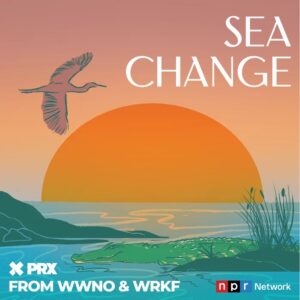
"Sea level rise is this big, scary reality. We’re always hearing predictions from scientists that the oceans will swallow islands, flood major cities, and wipe out huge stretches of coastline. The longer we burn fossil fuels, the bigger the surge. It sounds apocalyptic on this huge, global scale. But also totally abstract – it’s hard to picture. What will it mean for the sea to rise two feet… 4 feet…even 7 feet by the end of the century?"
Turns out, it depends where you look, the creators at the Sea Change podcast said in the release of the episode "From Sea to Rising Sea," available here.
In this episode, Sea Change "drops in on communities on each of America’s three coasts, each coming up with their own set of solutions to the water that is slowly consuming their edges."
Among the communities featured are those on the Middle Peninsula and across Tidewater, Virginia, specifically dealing with issues of failing septic systems and its impact to public health.
The episode was hosted and co-reported by Halle Parker in collaboration with Ezra David Romero of KQED in San Francisco and Katherine Hafner of WHRO in Norfolk, Virginia.
Katherine is WHRO’s climate and environment reporter. She came to WHRO from the Virginian-Pilot in 2022 and has worked to help tell the story of rising waters across the Middle Peninsula.
Sea Change is a WWNO and WRKF production. They are part of the NPR Podcast Network and distributed by PRX.
ABOUT SEA CHANGE - IN THEIR WORDS
Living on the coast means living on the front lines of a rapidly changing planet. And as climate change transforms our coasts, that will transform our world. Every two weeks, Sea Change brings listeners stories that illuminate, inspire and sometimes enrage, as hosts dive deep into the environmental issues facing coastal communities.

About Us
Submit Now
Want to help?
Download more information here about how to bring this program to your coastal community.
DOWNLOAD